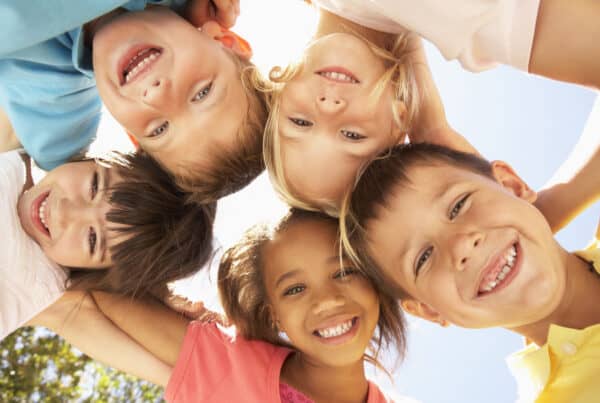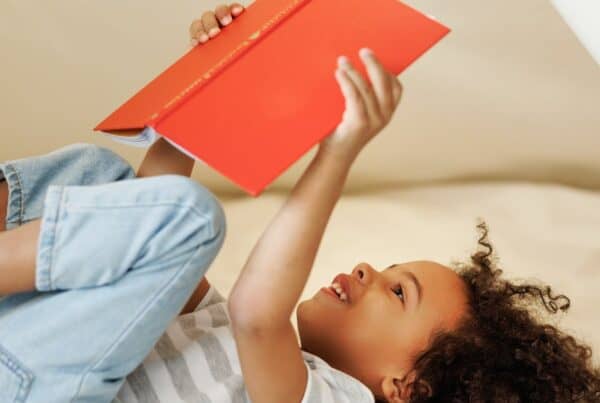Why Outdoor Education is More Than it Seems
Students throughout Australia are incredibly fortunate to have access to outdoor education and experiences. These often take place at several venues and in a range of diverse environments. We use the term “camp” in this context to describe a myriad of experiences. At most of these, students spend time away from their normal school and home environments. This time spent away sets aims of achieving a range of personal development outcomes and covering several curriculum elements.
The majority of these experiences occur “outdoors”. They can be separated along a continuum with outdoor recreation at one end and outdoor education at the other. Outdoor recreation focuses on participation in outdoor activities for the sake of the activity itself. Plus, for fun and enjoyment. Many “camps” fall towards this end of the continuum, and do have several associated benefits. Often these benefits are particularly related to health and physical education curriculum. These camps are often residential in nature, of shorter duration (2-4 days) and they use hard-top or similar permanent accommodation. Often, adults provide catering for students, and they rely on activity instructors to lead various outdoor activities. Little processing of learning from each activity is present. In general, there is the approach of “let the experience speak for itself” commonly employed.
There is value in taking students outdoors for recreation purposes alone, especially in today’s society where students are spending less time being physically active and outside.
Experiential Learning
True outdoor education programs also provide students with the above benefits, along with an array of broader, richer learning experiences. Outdoor Education can be most simply defined as “experiential learning in, about and for the outdoors”. Experiential learning is learning through experience, or learning by doing. More specifically, it is about learning through reflecting on doing. It is this process of continual reflection and development which separates outdoor education from outdoor recreation. The focus of true outdoor education must be on learning, or education – about oneself, about others and about the environment. Outdoor Education draws upon the philosophy, theory, and practices of both experiential education and environmental education.
Types of Outdoor Education Programs
Outdoor education programs can include residential programs for primary aged children especially, along with more rigorous journey-based/expedition programs for secondary-aged students. These carefully designed and sequenced programs often have students on the move each day (mostly by self-powered means such as hiking, paddling or cycling), sleeping in more mobile and rustic accommodation, cooking their own food and being more involved in the overall leadership and management decisions of their group. These programs are generally longer in duration (4+ days) and in many cases we can link them with previous lead-up experiences as part of a larger and sequential overall program.
Attributes Developed Through Outdoor Education Programs
Through experience I have identified and continually observe 10 key personal attributes and qualities that students develop through active participation in quality outdoor education programs.
These attributes are sought after by 21st century employers. In addition, they enable schools to graduate young adults who become contributing members of society. Some of these attributes can be developed rapidly, through one experience. Other attributes take significantly longer and occur after a range of sequential learning experiences:
Teamwork – working effectively with different people, developing group collaboration skills, understanding group development and dynamics.
Leadership and Followership – understanding leadership theory and practicing various leadership styles, including how to support leaders.
Communication – sharing ideas, actively listening to others, giving and receiving effective feedback, public speaking.
Planning and Organisation – managing resource use, developing and following schedules, modifying plans on the fly.
Self-management, Responsibility & Autonomy – developing and showing autonomy, the ability to manage oneself and to take full responsibility for one’s own actions and behaviours.
Resilience and Self Confidence – being confident in one’s own abilities and having a positive outlook for overcoming challenges, setbacks and trying new things – especially those outside of one’s comfort zone.
Problem-solving and Creativity developing innovative, creative and practical solutions to problems.
Self-reflection / Appraisal – being able to evaluate and reflect on oneself, performance and experiences, and to set goals. Expressing oneself in a variety of ways.
Initiative and Enterprise – embracing challenge and opportunities, plus working under pressure. Having a desire to learn and perform well.
Empathy and Understanding — the ability to truly understand and appreciate the perspective and needs of others, and to show this in considered actions.
Outdoor Learning is the term used in the Australian Curriculum for these experiences.
Their intention is for students to develop skills and understandings while valuing a positive relationship with natural environments and promoting sustainability. Outdoor Education also links to other key learning areas including Health and Physical Education, Humanities and Social Sciences, Geography and Science.
Outdoor learning also helps children to develop personal and social capability, critical and creative thinking, ethical understanding, an understanding of Aboriginal and Torres Strait Islander histories and cultures, as well as sustainability.
Kurt Hahn, regarded as one of the forefathers of modern outdoor education, eloquently says that “there is more in us than we know, and if only people could make us see it, for the rest of our lives we would be unwilling to settle for less”. True outdoor education aims to reveal to students their potential. It also provides them with the necessary skills and strategies to achieve this.





